- Home
- Arthur Conan Doyle
The Poison Belt Page 4
The Poison Belt Read online
Page 4
Chapter IV
A DIARY OF THE DYING
How strange the words look scribbled at the top of the empty page of mybook! How stranger still that it is I, Edward Malone, who have writtenthem--I who started only some twelve hours ago from my rooms in Streathamwithout one thought of the marvels which the day was to bring forth! Ilook back at the chain of incidents, my interview with McArdle,Challenger's first note of alarm in the Times, the absurd journey in thetrain, the pleasant luncheon, the catastrophe, and now it has come tothis--that we linger alone upon an empty planet, and so sure is our fatethat I can regard these lines, written from mechanical professional habitand never to be seen by human eyes, as the words of one who is alreadydead, so closely does he stand to the shadowed borderland over which alloutside this one little circle of friends have already gone. I feel howwise and true were the words of Challenger when he said that the realtragedy would be if we were left behind when all that is noble and goodand beautiful had passed. But of that there can surely be no danger.Already our second tube of oxygen is drawing to an end. We can count thepoor dregs of our lives almost to a minute.
We have just been treated to a lecture, a good quarter of an hour long,from Challenger, who was so excited that he roared and bellowed as if hewere addressing his old rows of scientific sceptics in the Queen's Hall.He had certainly a strange audience to harangue: his wife perfectlyacquiescent and absolutely ignorant of his meaning, Summerlee seated inthe shadow, querulous and critical but interested, Lord John lounging ina corner somewhat bored by the whole proceeding, and myself beside thewindow watching the scene with a kind of detached attention, as if itwere all a dream or something in which I had no personal interestwhatever. Challenger sat at the centre table with the electric lightilluminating the slide under the microscope which he had brought from hisdressing room. The small vivid circle of white light from the mirrorleft half of his rugged, bearded face in brilliant radiance and half indeepest shadow. He had, it seems, been working of late upon the lowestforms of life, and what excited him at the present moment was that in themicroscopic slide made up the day before he found the amoeba to be stillalive.
"You can see it for yourselves," he kept repeating in great excitement."Summerlee, will you step across and satisfy yourself upon the point?Malone, will you kindly verify what I say? The little spindle-shapedthings in the centre are diatoms and may be disregarded since they areprobably vegetable rather than animal. But the right-hand side you willsee an undoubted amoeba, moving sluggishly across the field. The upperscrew is the fine adjustment. Look at it for yourselves."
Summerlee did so and acquiesced. So did I and perceived a littlecreature which looked as if it were made of ground glass flowing in asticky way across the lighted circle. Lord John was prepared to take himon trust.
"I'm not troublin' my head whether he's alive or dead," said he. "Wedon't so much as know each other by sight, so why should I take it toheart? I don't suppose he's worryin' himself over the state of _our_health."
I laughed at this, and Challenger looked in my direction with his coldestand most supercilious stare. It was a most petrifying experience.
"The flippancy of the half-educated is more obstructive to science thanthe obtuseness of the ignorant," said he. "If Lord John Roxton wouldcondescend----"
"My dear George, don't be so peppery," said his wife, with her hand onthe black mane that drooped over the microscope. "What can it matterwhether the amoeba is alive or not?"
"It matters a great deal," said Challenger gruffly.
"Well, let's hear about it," said Lord John with a good-humoured smile."We may as well talk about that as anything else. If you think I've beentoo off-hand with the thing, or hurt its feelin's in any way, I'llapologize."
"For my part," remarked Summerlee in his creaky, argumentative voice, "Ican't see why you should attach such importance to the creature beingalive. It is in the same atmosphere as ourselves, so naturally thepoison does not act upon it. If it were outside of this room it would bedead, like all other animal life."
"Your remarks, my good Summerlee," said Challenger with enormouscondescension (oh, if I could paint that over-bearing, arrogant face inthe vivid circle of reflection from the microscope mirror!)--"yourremarks show that you imperfectly appreciate the situation. Thisspecimen was mounted yesterday and is hermetically sealed. None of ouroxygen can reach it. But the ether, of course, has penetrated to it, asto every other point upon the universe. Therefore, it has survived thepoison. Hence, we may argue that every amoeba outside this room, insteadof being dead, as you have erroneously stated, has really survived thecatastrophe."
"Well, even now I don't feel inclined to hip-hurrah about it," said LordJohn. "What does it matter?"
"It just matters this, that the world is a living instead of a dead one.If you had the scientific imagination, you would cast your mind forwardfrom this one fact, and you would see some few millions of years hence--amere passing moment in the enormous flux of the ages--the whole worldteeming once more with the animal and human life which will spring fromthis tiny root. You have seen a prairie fire where the flames have sweptevery trace of grass or plant from the surface of the earth and left onlya blackened waste. You would think that it must be forever desert. Yetthe roots of growth have been left behind, and when you pass the place afew years hence you can no longer tell where the black scars used to be.Here in this tiny creature are the roots of growth of the animal world,and by its inherent development, and evolution, it will surely in timeremove every trace of this incomparable crisis in which we are nowinvolved."
"Dooced interestin'!" said Lord John, lounging across and looking throughthe microscope. "Funny little chap to hang number one among the familyportraits. Got a fine big shirt-stud on him!"
"The dark object is his nucleus," said Challenger with the air of a nurseteaching letters to a baby.
"Well, we needn't feel lonely," said Lord John laughing. "There'ssomebody livin' besides us on the earth."
"You seem to take it for granted, Challenger," said Summerlee, "that theobject for which this world was created was that it should produce andsustain human life."
"Well, sir, and what object do you suggest?" asked Challenger, bristlingat the least hint of contradiction.
"Sometimes I think that it is only the monstrous conceit of mankind whichmakes him think that all this stage was erected for him to strut upon."
"We cannot be dogmatic about it, but at least without what you haveventured to call monstrous conceit we can surely say that we are thehighest thing in nature."
"The highest of which we have cognizance."
"That, sir, goes without saying."
"Think of all the millions and possibly billions of years that the earthswung empty through space--or, if not empty, at least without a sign orthought of the human race. Think of it, washed by the rain and scorchedby the sun and swept by the wind for those unnumbered ages. Man onlycame into being yesterday so far as geological times goes. Why, then,should it be taken for granted that all this stupendous preparation wasfor his benefit?"
"For whose then--or for what?"
Summerlee shrugged his shoulders.
"How can we tell? For some reason altogether beyond our conception--andman may have been a mere accident, a by-product evolved in the process.It is as if the scum upon the surface of the ocean imagined that theocean was created in order to produce and sustain it, or a mouse in acathedral thought that the building was its own proper ordainedresidence."
I have jotted down the very words of their argument, but now itdegenerates into a mere noisy wrangle with much polysyllabic scientificjargon upon each side. It is no doubt a privilege to hear two suchbrains discuss the highest questions; but as they are in perpetualdisagreement, plain folk like Lord John and I get little that is positivefrom the exhibition. They neutralize each other and we are left as theyfound us. Now the hubbub has ceased, and Summerlee is coiled up in hischair, while Challenger, still finge
ring the screws of his microscope, iskeeping up a continual low, deep, inarticulate growl like the sea after astorm. Lord John comes over to me, and we look out together into thenight.
There is a pale new moon--the last moon that human eyes will ever restupon--and the stars are most brilliant. Even in the clear plateau air ofSouth America I have never seen them brighter. Possibly this ethericchange has some effect upon light. The funeral pyre of Brighton is stillblazing, and there is a very distant patch of scarlet in the western sky,which may mean trouble at Arundel or Chichester, possibly even atPortsmouth. I sit and muse and make an occasional note. There is asweet melancholy in the air. Youth and beauty and chivalry and love--isthis to be the end of it all? The starlit earth looks a dreamland ofgentle peace. Who would imagine it as the terrible Golgotha strewn withthe bodies of the human race? Suddenly, I find myself laughing.
"Halloa, young fellah!" says Lord John, staring at me in surprise. "Wecould do with a joke in these hard times. What was it, then?"
"I was thinking of all the great unsolved questions," I answer, "thequestions that we spent so much labor and thought over. Think ofAnglo-German competition, for example--or the Persian Gulf that my oldchief was so keen about. Whoever would have guessed, when we fumed andfretted so, how they were to be eventually solved?"
We fall into silence again. I fancy that each of us is thinking offriends that have gone before. Mrs. Challenger is sobbing quietly, andher husband is whispering to her. My mind turns to all the most unlikelypeople, and I see each of them lying white and rigid as poor Austin doesin the yard. There is McArdle, for example, I know exactly where he is,with his face upon his writing desk and his hand on his own telephone,just as I heard him fall. Beaumont, the editor, too--I suppose he islying upon the blue-and-red Turkey carpet which adorned his sanctum. Andthe fellows in the reporters' room--Macdona and Murray and Bond. Theyhad certainly died hard at work on their job, with note-books full ofvivid impressions and strange happenings in their hands. I could justimagine how this one would have been packed off to the doctors, and thatother to Westminster, and yet a third to St. Paul's. What glorious rowsof head-lines they must have seen as a last vision beautiful, neverdestined to materialize in printer's ink! I could see Macdona among thedoctors--"Hope in Harley Street"--Mac had always a weakness foralliteration. "Interview with Mr. Soley Wilson." "Famous Specialist says'Never despair!'" "Our Special Correspondent found the eminent scientistseated upon the roof, whither he had retreated to avoid the crowd ofterrified patients who had stormed his dwelling. With a manner whichplainly showed his appreciation of the immense gravity of the occasion,the celebrated physician refused to admit that every avenue of hope hadbeen closed." That's how Mac would start. Then there was Bond; he wouldprobably do St. Paul's. He fancied his own literary touch. My word,what a theme for him! "Standing in the little gallery under the dome andlooking down upon that packed mass of despairing humanity, groveling atthis last instant before a Power which they had so persistently ignored,there rose to my ears from the swaying crowd such a low moan of entreatyand terror, such a shuddering cry for help to the Unknown, that----" andso forth.
Yes, it would be a great end for a reporter, though, like myself, hewould die with the treasures still unused. What would Bond not give,poor chap, to see "J. H. B." at the foot of a column like that?
But what drivel I am writing! It is just an attempt to pass the wearytime. Mrs. Challenger has gone to the inner dressing-room, and theProfessor says that she is asleep. He is making notes and consultingbooks at the central table, as calmly as if years of placid work laybefore him. He writes with a very noisy quill pen which seems to bescreeching scorn at all who disagree with him.
Summerlee has dropped off in his chair and gives from time to time apeculiarly exasperating snore. Lord John lies back with his hands in hispockets and his eyes closed. How people can sleep under such conditionsis more than I can imagine.
Three-thirty a.m. I have just wakened with a start. It was five minutespast eleven when I made my last entry. I remember winding up my watchand noting the time. So I have wasted some five hours of the little spanstill left to us. Who would have believed it possible? But I feel verymuch fresher, and ready for my fate--or try to persuade myself that I am.And yet, the fitter a man is, and the higher his tide of life, the moremust he shrink from death. How wise and how merciful is that provisionof nature by which his earthly anchor is usually loosened by many littleimperceptible tugs, until his consciousness has drifted out of itsuntenable earthly harbor into the great sea beyond!
Mrs. Challenger is still in the dressing room. Challenger has fallenasleep in his chair. What a picture! His enormous frame leans back, hishuge, hairy hands are clasped across his waistcoat, and his head is sotilted that I can see nothing above his collar save a tangled bristle ofluxuriant beard. He shakes with the vibration of his own snoring.Summerlee adds his occasional high tenor to Challenger's sonorous bass.Lord John is sleeping also, his long body doubled up sideways in abasket-chair. The first cold light of dawn is just stealing into theroom, and everything is grey and mournful.
I look out at the sunrise--that fateful sunrise which will shine upon anunpeopled world. The human race is gone, extinguished in a day, but theplanets swing round and the tides rise or fall, and the wind whispers,and all nature goes her way, down, as it would seem, to the very amoeba,with never a sign that he who styled himself the lord of creation hadever blessed or cursed the universe with his presence. Down in the yardlies Austin with sprawling limbs, his face glimmering white in the dawn,and the hose nozzle still projecting from his dead hand. The whole ofhuman kind is typified in that one half-ludicrous and half-patheticfigure, lying so helpless beside the machine which it used to control.
Here end the notes which I made at the time. Henceforward events weretoo swift and too poignant to allow me to write, but they are too clearlyoutlined in my memory that any detail could escape me.
Some chokiness in my throat made me look at the oxygen cylinders, and Iwas startled at what I saw. The sands of our lives were running verylow. At some period in the night Challenger had switched the tube fromthe third to the fourth cylinder. Now it was clear that this also wasnearly exhausted. That horrible feeling of constriction was closing inupon me. I ran across and, unscrewing the nozzle, I changed it to ourlast supply. Even as I did so my conscience pricked me, for I felt thatperhaps if I had held my hand all of them might have passed in theirsleep. The thought was banished, however, by the voice of the lady fromthe inner room crying:--
"George, George, I am stifling!"
"It is all right, Mrs. Challenger," I answered as the others started totheir feet. "I have just turned on a fresh supply."
Even at such a moment I could not help smiling at Challenger, who with agreat hairy fist in each eye was like a huge, bearded baby, new wakenedout of sleep. Summerlee was shivering like a man with the ague, humanfears, as he realized his position, rising for an instant above thestoicism of the man of science. Lord John, however, was as cool andalert as if he had just been roused on a hunting morning.
"Fifthly and lastly," said he, glancing at the tube. "Say, young fellah,don't tell me you've been writin' up your impressions in that paper onyour knee."
"Just a few notes to pass the time."
"Well, I don't believe anyone but an Irishman would have done that. Iexpect you'll have to wait till little brother amoeba gets grown upbefore you'll find a reader. He don't seem to take much stock of thingsjust at present. Well, Herr Professor, what are the prospects?"
Challenger was looking out at the great drifts of morning mist which layover the landscape. Here and there the wooded hills rose like conicalislands out of this woolly sea.
"It might be a winding sheet," said Mrs. Challenger, who had entered inher dressing-gown. "There's that song of yours, George, 'Ring out theold, ring in the new.' It was prophetic. But you are shivering, my poordear friends. I have been warm under a
coverlet all night, and you coldin your chairs. But I'll soon set you right."
The brave little creature hurried away, and presently we heard thesizzling of a kettle. She was back soon with five steaming cups of cocoaupon a tray.
"Drink these," said she. "You will feel so much better."
And we did. Summerlee asked if he might light his pipe, and we all hadcigarettes. It steadied our nerves, I think, but it was a mistake, forit made a dreadful atmosphere in that stuffy room. Challenger had toopen the ventilator.
"How long, Challenger?" asked Lord John.
"Possibly three hours," he answered with a shrug.
"I used to be frightened," said his wife. "But the nearer I get to it,the easier it seems. Don't you think we ought to pray, George?"
"You will pray, dear, if you wish," the big man answered, very gently."We all have our own ways of praying. Mine is a complete acquiescence inwhatever fate may send me--a cheerful acquiescence. The highest religionand the highest science seem to unite on that."
"I cannot truthfully describe my mental attitude as acquiescence and farless cheerful acquiescence," grumbled Summerlee over his pipe. "I submitbecause I have to. I confess that I should have liked another year oflife to finish my classification of the chalk fossils."
"Your unfinished work is a small thing," said Challenger pompously, "whenweighed against the fact that my own _magnum opus_, 'The Ladder of Life,'is still in the first stages. My brain, my reading, my experience--infact, my whole unique equipment--were to be condensed into thatepoch-making volume. And yet, as I say, I acquiesce."
"I expect we've all left some loose ends stickin' out," said Lord John."What are yours, young fellah?"
"I was working at a book of verses," I answered.
"Well, the world has escaped that, anyhow," said Lord John. "There'salways compensation somewhere if you grope around."
"What about you?" I asked.
"Well, it just so happens that I was tidied up and ready. I'd promisedMerivale to go to Tibet for a snow leopard in the spring. But it's hardon you, Mrs. Challenger, when you have just built up this pretty home."
"Where George is, there is my home. But, oh, what would I not give forone last walk together in the fresh morning air upon those beautifuldowns!"
Our hearts re-echoed her words. The sun had burst through the gauzymists which veiled it, and the whole broad Weald was washed in goldenlight. Sitting in our dark and poisonous atmosphere that glorious,clean, wind-swept countryside seemed a very dream of beauty. Mrs.Challenger held her hand stretched out to it in her longing. We drew upchairs and sat in a semicircle in the window. The atmosphere was alreadyvery close. It seemed to me that the shadows of death were drawing inupon us--the last of our race. It was like an invisible curtain closingdown upon every side.
"That cylinder is not lastin' too well," said Lord John with a long gaspfor breath.
"The amount contained is variable," said Challenger, "depending upon thepressure and care with which it has been bottled. I am inclined to agreewith you, Roxton, that this one is defective."
"So we are to be cheated out of the last hour of our lives," Summerleeremarked bitterly. "An excellent final illustration of the sordid age inwhich we have lived. Well, Challenger, now is your time if you wish tostudy the subjective phenomena of physical dissolution."
"Sit on the stool at my knee and give me your hand," said Challenger tohis wife. "I think, my friends, that a further delay in thisinsufferable atmosphere is hardly advisable. You would not desire it,dear, would you?"
His wife gave a little groan and sank her face against his leg.
"I've seen the folk bathin' in the Serpentine in winter," said Lord John."When the rest are in, you see one or two shiverin' on the bank, envyin'the others that have taken the plunge. It's the last that have the worstof it. I'm all for a header and have done with it."
"You would open the window and face the ether?"
"Better be poisoned than stifled."
Summerlee nodded his reluctant acquiescence and held out his thin hand toChallenger.
"We've had our quarrels in our time, but that's all over," said he. "Wewere good friends and had a respect for each other under the surface.Good-by!"
"Good-by, young fellah!" said Lord John. "The window's plastered up.You can't open it."
Challenger stooped and raised his wife, pressing her to his breast, whileshe threw her arms round his neck.
"Give me that field-glass, Malone," said he gravely.
I handed it to him.
"Into the hands of the Power that made us we render ourselves again!" heshouted in his voice of thunder, and at the words he hurled thefield-glass through the window.
Full in our flushed faces, before the last tinkle of falling fragmentshad died away, there came the wholesome breath of the wind, blowingstrong and sweet.
I don't know how long we sat in amazed silence. Then as in a dream, Iheard Challenger's voice once more.
"We are back in normal conditions," he cried. "The world has cleared thepoison belt, but we alone of all mankind are saved."

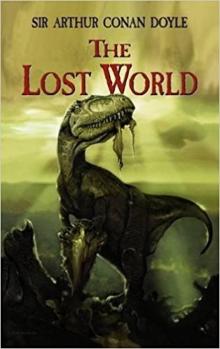 The Lost World
The Lost World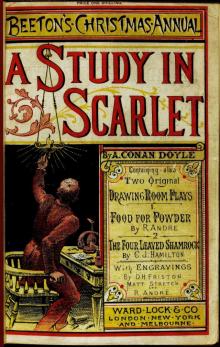 A Study in Scarlet
A Study in Scarlet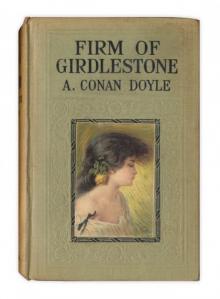 The Firm of Girdlestone
The Firm of Girdlestone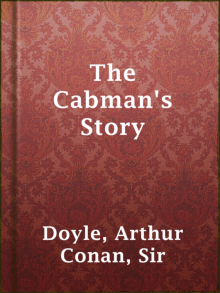 The Cabman's Story
The Cabman's Story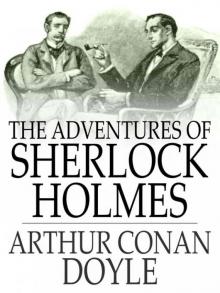 The Adventures of Sherlock Holmes
The Adventures of Sherlock Holmes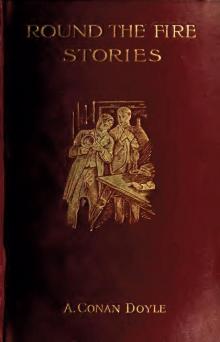 Round the Fire Stories
Round the Fire Stories His Last Bow: An Epilogue of Sherlock Holmes
His Last Bow: An Epilogue of Sherlock Holmes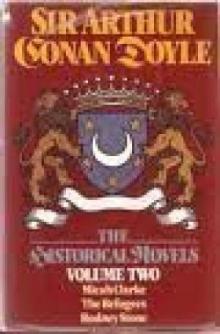 Micah Clarke
Micah Clarke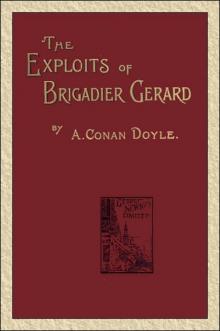 The Exploits of Brigadier Gerard
The Exploits of Brigadier Gerard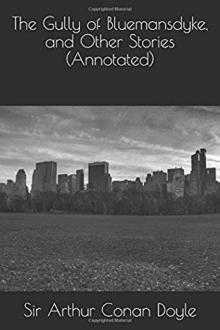 The Gully of Bluemansdyke, and Other stories
The Gully of Bluemansdyke, and Other stories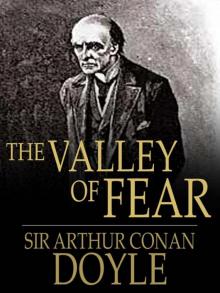 The Valley of Fear
The Valley of Fear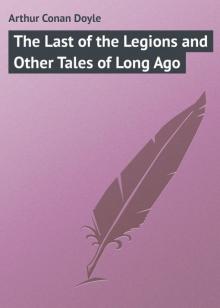 The Last of the Legions and Other Tales of Long Ago
The Last of the Legions and Other Tales of Long Ago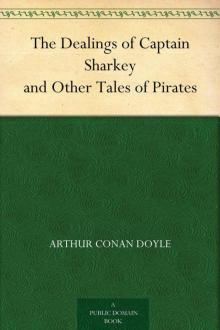 The Dealings of Captain Sharkey, and Other Tales of Pirates
The Dealings of Captain Sharkey, and Other Tales of Pirates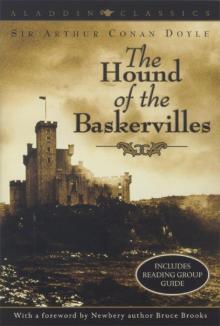 The Hound of the Baskervilles
The Hound of the Baskervilles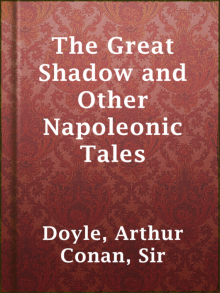 The Great Shadow and Other Napoleonic Tales
The Great Shadow and Other Napoleonic Tales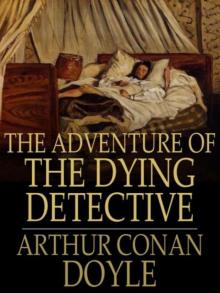 The Adventure of the Dying Detective
The Adventure of the Dying Detective The Man from Archangel, and Other Tales of Adventure
The Man from Archangel, and Other Tales of Adventure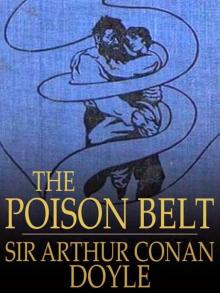 The Poison Belt
The Poison Belt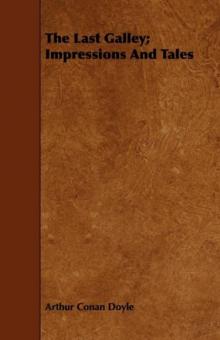 The Last Galley; Impressions and Tales
The Last Galley; Impressions and Tales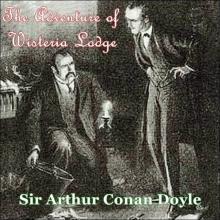 The Adventure of Wisteria Lodge
The Adventure of Wisteria Lodge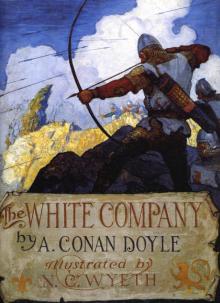 The White Company
The White Company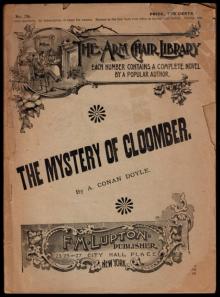 The Mystery of Cloomber
The Mystery of Cloomber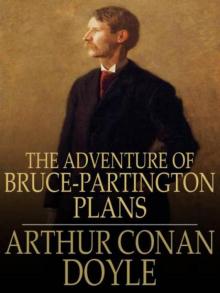 The Adventure of the Bruce-Partington Plans
The Adventure of the Bruce-Partington Plans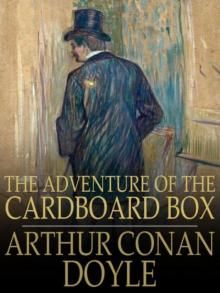 The Adventure of the Cardboard Box
The Adventure of the Cardboard Box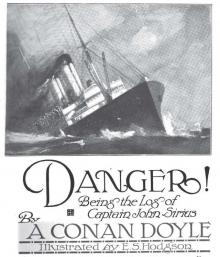 Danger! and Other Stories
Danger! and Other Stories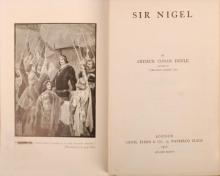 Sir Nigel
Sir Nigel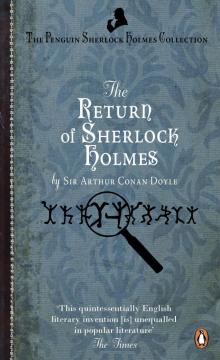 The Return of Sherlock Holmes
The Return of Sherlock Holmes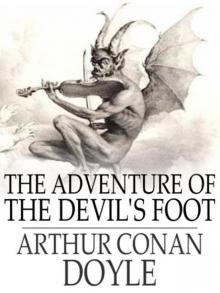 The Adventure of the Devil's Foot
The Adventure of the Devil's Foot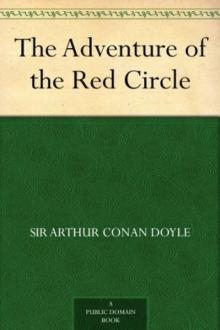 The Adventure of the Red Circle
The Adventure of the Red Circle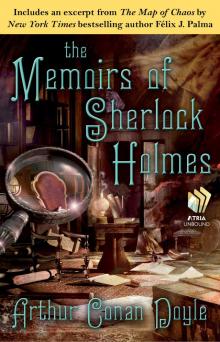 The Memoirs of Sherlock Holmes
The Memoirs of Sherlock Holmes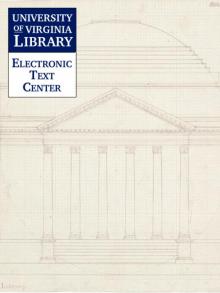 The Adventure of the Yellow Face
The Adventure of the Yellow Face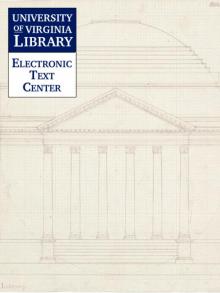 The Adventure of the Norwood Builder
The Adventure of the Norwood Builder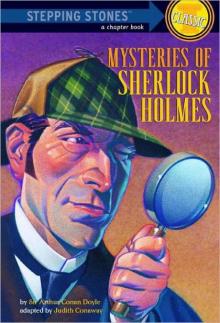 Mysteries of Sherlock Holmes
Mysteries of Sherlock Holmes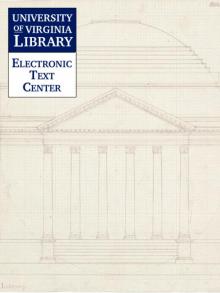 The Adventure of the Missing Three-Quarter
The Adventure of the Missing Three-Quarter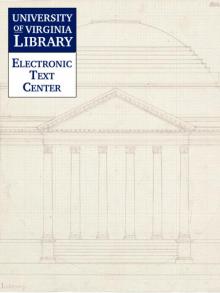 The Adventure of the Final Problem
The Adventure of the Final Problem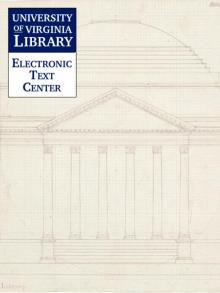 A Scandal in Bohemia
A Scandal in Bohemia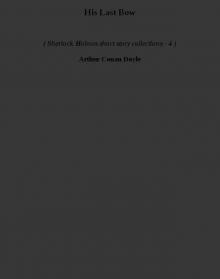 His Last Bow shssc-4
His Last Bow shssc-4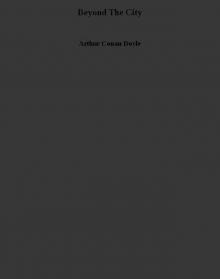 Beyond The City
Beyond The City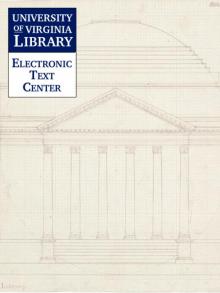 The Adventure of the Gloria Scott
The Adventure of the Gloria Scott The Parasite
The Parasite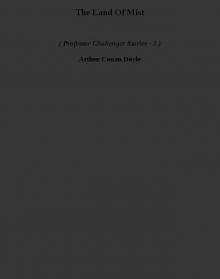 The Land Of Mist pcs-3
The Land Of Mist pcs-3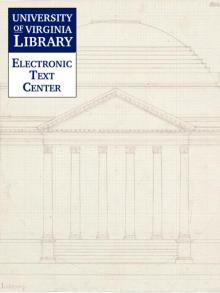 The Adventure of the Musgrave Ritual
The Adventure of the Musgrave Ritual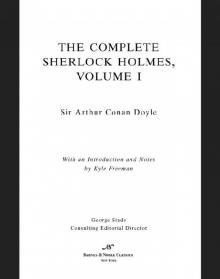 The Complete Sherlock Holmes, Volume I (Barnes & Noble Classics Series)
The Complete Sherlock Holmes, Volume I (Barnes & Noble Classics Series)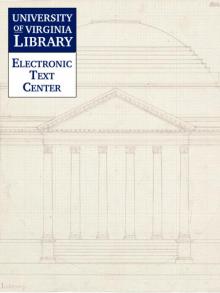 The Adventure of the Stockbroker's Clerk
The Adventure of the Stockbroker's Clerk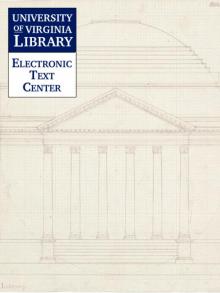 The Adventure of the Copper Beeches
The Adventure of the Copper Beeches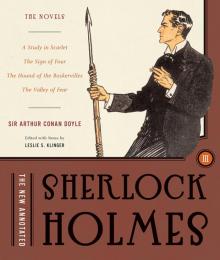 The New Annotated Sherlock Holmes
The New Annotated Sherlock Holmes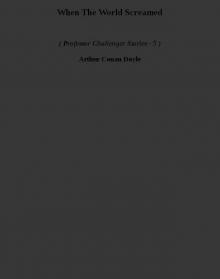 When The World Screamed pcs-5
When The World Screamed pcs-5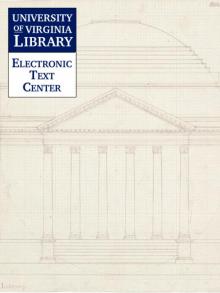 The Adventure of the Six Napoleons
The Adventure of the Six Napoleons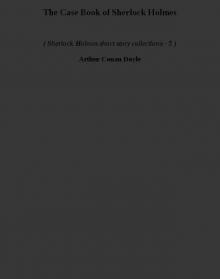 The Case Book of Sherlock Holmes shssc-5
The Case Book of Sherlock Holmes shssc-5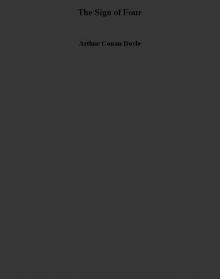 The Sign of Four
The Sign of Four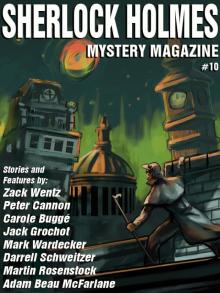 Sherlock Holmes Mystery Magazine #10
Sherlock Holmes Mystery Magazine #10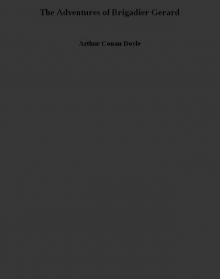 The Adventures of Brigadier Gerard
The Adventures of Brigadier Gerard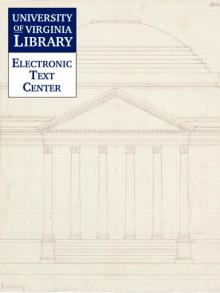 The Adventure of the Second Stain
The Adventure of the Second Stain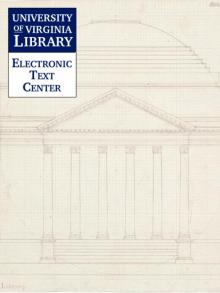 The Adventure of the Engineer's Thumb
The Adventure of the Engineer's Thumb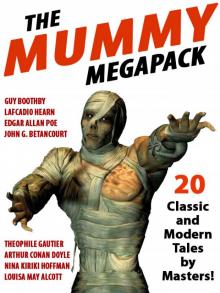 The Mummy Megapack
The Mummy Megapack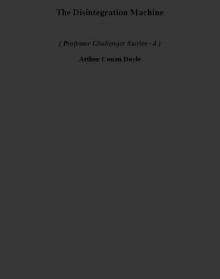 The Disintegration Machine pcs-4
The Disintegration Machine pcs-4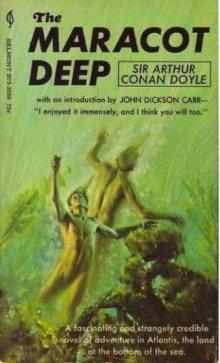 The Maracot Deep
The Maracot Deep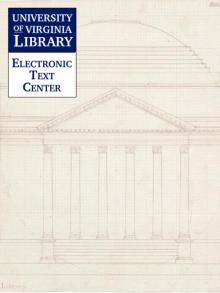 The Five Orange Pips
The Five Orange Pips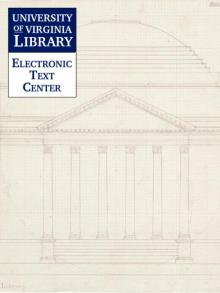 The Adventure of the Crooked Man
The Adventure of the Crooked Man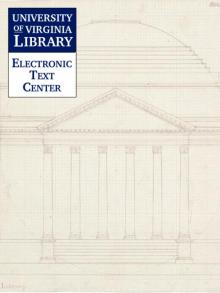 The Adventure of the Blue Carbuncle
The Adventure of the Blue Carbuncle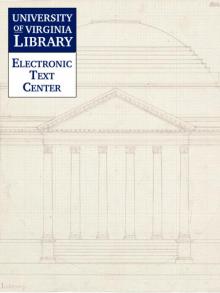 The Adventure of Silver Blaze
The Adventure of Silver Blaze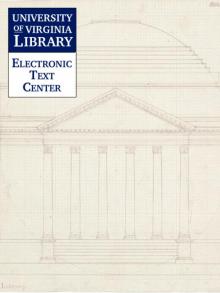 The Adventure of the Solitary Cyclist
The Adventure of the Solitary Cyclist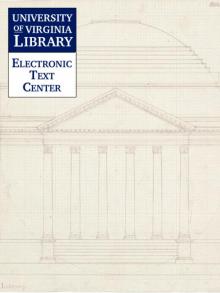 The Adventure of the Naval Treaty
The Adventure of the Naval Treaty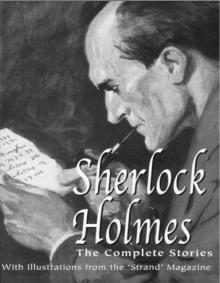 Sherlock Holmes. The Complete Stories
Sherlock Holmes. The Complete Stories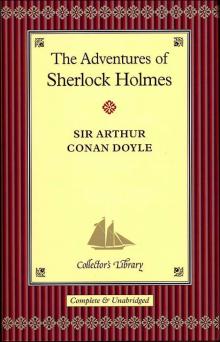 The Adventures of Sherlock Holmes (sherlock holmes)
The Adventures of Sherlock Holmes (sherlock holmes)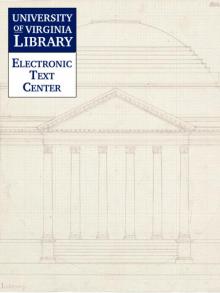 The Adventure of the Empty House
The Adventure of the Empty House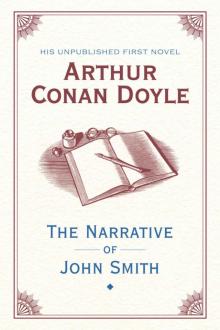 The Narrative of John Smith
The Narrative of John Smith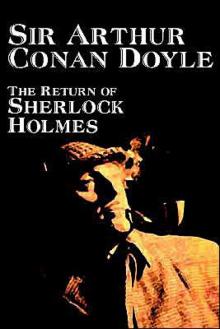 The Return of Sherlock Holmes (sherlock holmes)
The Return of Sherlock Holmes (sherlock holmes)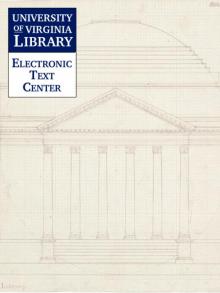 The New Revelation
The New Revelation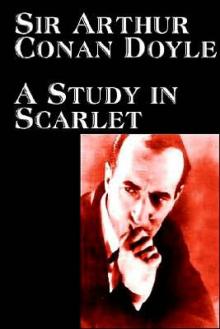 A Study in Scarlet (sherlock holmes)
A Study in Scarlet (sherlock holmes)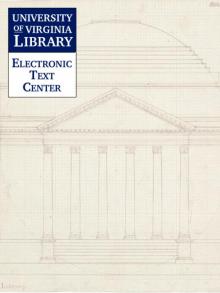 The Vital Message
The Vital Message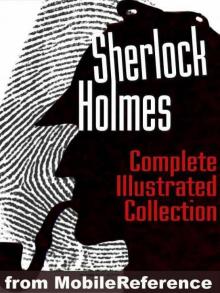 Sherlock Holmes Complete Collection
Sherlock Holmes Complete Collection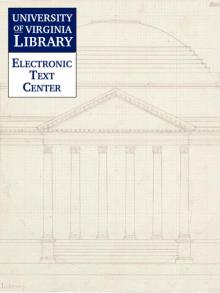 Round the Red Lamp
Round the Red Lamp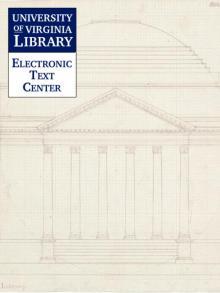 The Boscombe Valley Mystery
The Boscombe Valley Mystery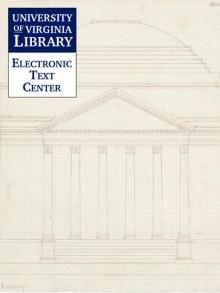 The Adventure of the Beryl Coronet
The Adventure of the Beryl Coronet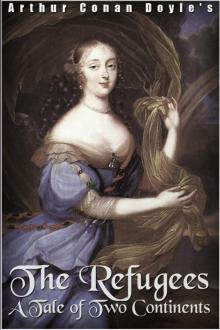 The Refugees
The Refugees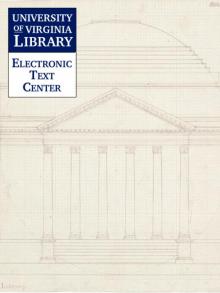 The Adventure of the Three Students.
The Adventure of the Three Students.